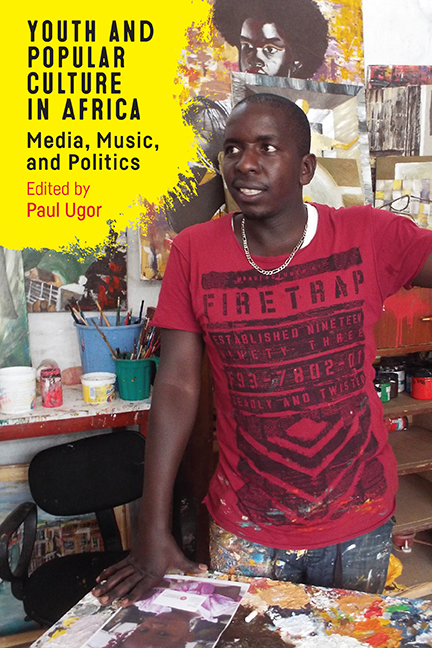Book contents
- Frontmatter
- Dedication
- Contents
- Preface
- Introduction: Youth, Media, and Popular Arts Culture in Contemporary Africa
- Part One Media Globalization, Popular Afro Hip-Hop, and Postcolonial Political Critique
- Part Two Popular Online Media and Democratic Participation and Engagement
- Part Three Popular Arts, Everyday Life, and the Politicization of Culture
- Afterword: Young People and the Future of African Worlds
- Notes on Contributors
- Index
10 - Resisting Political Oppression: Youth and Social Media in Zimbabwe
Published online by Cambridge University Press: 26 May 2022
- Frontmatter
- Dedication
- Contents
- Preface
- Introduction: Youth, Media, and Popular Arts Culture in Contemporary Africa
- Part One Media Globalization, Popular Afro Hip-Hop, and Postcolonial Political Critique
- Part Two Popular Online Media and Democratic Participation and Engagement
- Part Three Popular Arts, Everyday Life, and the Politicization of Culture
- Afterword: Young People and the Future of African Worlds
- Notes on Contributors
- Index
Summary
Introduction
In a national context embroiled in political-economic crisis, Zimbabwean youth have configured social spaces on social media platforms to resist political oppression. This chapter focuses on the ways in which youth respond to political oppression in Zimbabwe through the creative utilization of cyberspace and popular entertainment, more particularly, social media such as Facebook, Twitter, popular humor, and music. The chapter asserts that social media platforms now function as new forms of popular culture, which youth produce in textual, photographic, and video forms in responding to and challenging oppressive politics and regimes in Africa. While the posts can be viewed as “movements” and “emerging forums,” we assert that they are embedded in and with political tones that mediate political engagement with adamant political elites. While this is not a new phenomenon, we explore how these online spaces have been appropriated by youth as “new” and viable political instruments in responding to a government heavily backed by the military. The extent to which youth have mobilized themselves against the government on social media have of late driven the government to block the use of internet during mass demonstrations in Zimbabwe.
For instance, in the January 2019 mass protests mobilized by young people through social media platforms, the state responded by ordering a complete internet and social media shutdown for almost a week. This desperate attempt by the state to censure youth activism on social media demonstrates that the youth are not only politically innovative on social media but also that their active engagement with the oppressive state is real and consequential. Youth engagement on social media platforms in Zimbabwe spurns the idea of new media as sources of mere entertainment, as it is politically charged with varied meanings that speak to the current and ongoing political mischief in the Zimbabwean context. While the memes, video clips, political poems, and songs created by youth are somehow entertaining, the motive is mostly political (i.e., it aims to engage with a devious state that is apparently driven by the desire to subjugate its citizens through military authority and power. Even as people laugh at the memes, the Facebook wall postings, and the hilarious comments on Twitter handles, their understanding of these messages are rooted in political undertones and meanings.
- Type
- Chapter
- Information
- Youth and Popular Culture in AfricaMedia, Music, and Politics, pp. 255 - 276Publisher: Boydell & BrewerPrint publication year: 2021



